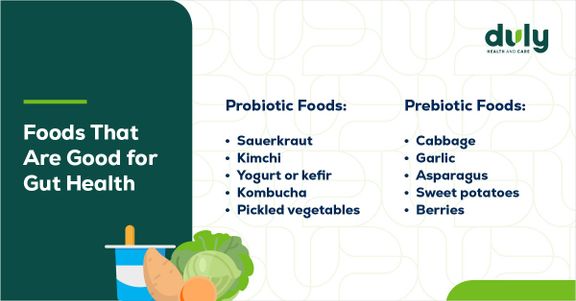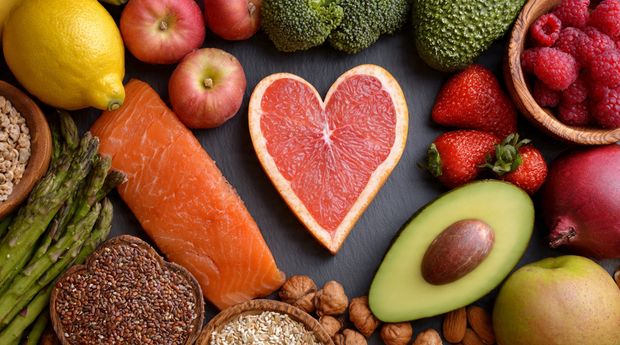Your diet is made up of many different parts. Each part helps your body function and work each day. You may be familiar with some of the different nutrients in your food like vitamins, minerals, and proteins, but a well-rounded diet includes so much more.
Other key aspects of a well-rounded diet — and especially a healthy gut — are probiotics and prebiotics.
While probiotics are a term you might hear on TV or social media, you may be wondering what they are, what they do, and if you should be eating more of them. These are all great questions, and here are the answers.
1. Why should I eat probiotics and prebiotics?
Different nutrients help your body and health in different ways. Vitamin D can protect your bones, protein can help you build muscle, and vitamin C can help keep you from getting sick. Probiotics also can play a role in your health by maintaining a healthy balance of good bacteria in your gut.
While you may hear the word “bacteria” and think about getting sick, this kind of bacteria is different, and it can actually be helpful for your body. Probiotics are the good kind of bacteria that can be found in your digestive tract.
Having a healthy balance of bacteria in your gut might not seem like it will have a big impact, but it can help improve your digestion, immune system, weight management, skin health, and even brain health.
Prebiotics on the other hand aren’t bacteria but are instead made up of dietary fibers. Your body can’t digest these fibers, so you might be wondering why you need them. Prebiotics can help the probiotics do their work in your body, which is why it’s best to consume some of both.
Many prebiotics are found naturally in foods that are already full of other nutrients, like bananas and beans. These foods can provide you with many of the vitamins and minerals your body needs anyway — having a prebiotic benefit is just a bonus!
To learn more about improving the health of your digestive system with prebiotics and probiotics or to discuss any digestive concerns or symptoms, you can schedule an appointment with one of our primary care physicians online or by calling your desired location.
2. How can I get more pre- and probiotics in my diet?
When it comes to making a healthy addition to your diet, there’s no time like the present. You can focus on your gut health at any time of the year, but it might be even more relevant on St. Patrick’s Day.
You may be wondering what the connection is between pro- and prebiotics and this March holiday. While they might seem unrelated, they are connected by one lucky food: cabbage.
Cabbage can both be a prebiotic and a probiotic depending on how it is cooked. On its own, cabbage is already a prebiotic. But when it is turned into sauerkraut or kimchi, the fermenting process creates bacteria that make it a probiotic.
So if your St. Patrick’s Day celebrations include a special dinner of corned beef and cabbage, you’re not only treating yourself to a great meal, but you’re treating your gut, too.

It’s important to remember that not all probiotics are created equal — especially when it comes to supplements you might find in the store. Probiotic supplements aren’t all held to the same FDA standards as other prescription drugs. This means you may not know exactly what is in them or how honest a company is being about their product.
Eating a little bit more yogurt in your diet is one thing and is generally going to be harmless — even if it doesn’t drastically improve your health. Taking a random probiotic supplement that you saw on TikTok is another thing and could actually be very harmful.
3. Who should try probiotics?
Gut health is important for everyone, and research suggests that probiotics and prebiotics have positive impacts on your health.
Recent research has shown that probiotics may be beneficial for people who have:
Irritable Bowel Syndrome
Inflammatory Bowel Disease
Constipation
We don’t know everything there is to know about probiotics, and there is still a lot to learn. Future studies will continue to look at how gut health may impact overall health and can give medical providers a better idea about who probiotics can help.
It’s All About Balance
Just like with other aspects of your diet, it’s all about balance. Everybody’s body is unique and responds to new foods in its own way.
If you’re interested in eating more gut-healthy foods like prebiotics and probiotics, start by talking to your Duly primary care provider. They can review your medical history and understand your health goals or concerns. They can also answer any questions you may have and help you figure out what changes in your diet are healthy and safe.
Health Topics:







